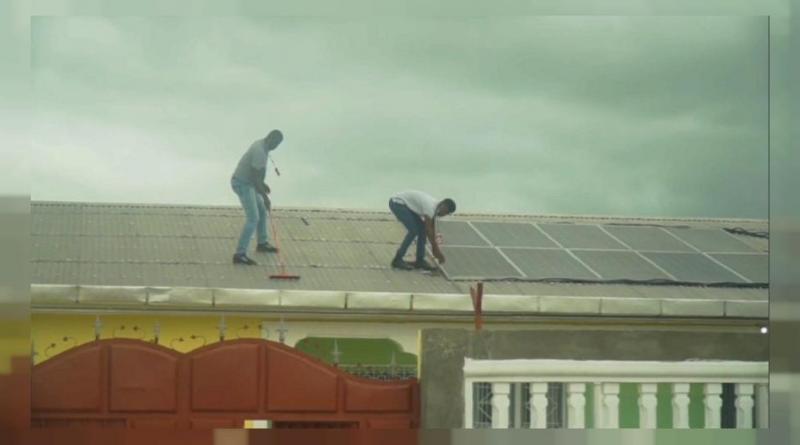Solar power could be the green energy solution for Congo.

The Loudima family in Congo have long been without electricity but they have found an environmental solution: solar power.
In the remote districts of Pointe Noire, the Congolese start-up Hélios Électricité has installed a solar power plant.
"I am very happy to have the solar panels, I installed 10 solar panels, It powers my 52-inch plasma television, two freezers and even a two-horsepower air conditioner," the father of the family told Africanews.
According to the World Bank, nearly half of the Congolese population does not have access to electricity.
Cheaper bills and a greener future
Congo is one of the top five oil producers in Sub-Saharan Africa.
But despite its rich energy resources, the electrification rate is low, especially in rural areas, mainly because of a lack of electricity infrastructure.
But solar power could be the future as it is also said to be cheaper for households.
"What we did for our client, Mr. Loudima, is a solar power plant of 3000 megawatt peak which is composed of 10 solar modules of 300 watt each and a 3 KVA inverter, this system falls within the scope of what we want to do for our customers, namely to provide them with autonomy in electricity," said Laslande Moutoundou; Head of Study and Development Helios Electricity.
In addition to being a decarbonized energy solution transmitted directly by the sun, it is also said to be cheaper.
"With a solar installation you will save more money, compared to for example a generator or compared to an electricity bill," said Melki Valenti Tchicaya, an installation and maintenance manager at Helios Electricity.
"You are self-sufficient, which means you don't need to pay any charges for a monthly electric bill, and maintenance is cheaper.
"The advantage of a solar installation is that the source is renewable energy and that will allow you to always be provided with electricity because there is no blackout. "
Solar power could be the miracle solution to trigger the energy transition, pumping fresh water and supplying low-income households with basic needs.
But the panels cost a small fortune, ranging between 500 and 6,000 euros.
*watch the video here
14 December 2020
africanews.




